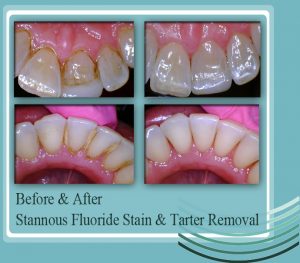Patients who are athletes or work outside during the summer tell us they consume sports drinks as a healthy option to other beverages. Unfortunately, the opposite can be true depending on the content of the drink. The same goes for sodas, energy drinks, fruit drinks and even coffee with flavored creamer.
Researchers have linked the consumption of these beverages with tooth decay. The combination of sugar and acid creates an environment in our mouth that supports the growth of the bacteria that cause cavities and the erosion of enamel.
What’s more, brushing after drinking these items causes even more damage. Enamel that has been softened through exposure to sugars and acids is highly susceptible to abrasion from toothpaste and the mechanical instrumentation of the toothbrush.

The findings are being presented at the International Association for Dental Research in Miami. “This is the first time that the citric acid in sports drinks has been linked to erosive tooth wear,” says Mark Wolff, DDS, professor and chairman of the department of comprehensive care at New York University College of Dentistry.
The good news is that there are ways to lessen the effects of sugary and acidic beverages.

- Choose sugar-free drinks. Bacteria cannot use the sugar-free substitutes as a food source.
- Drink it all in one sitting. Sipping over a long period of time keeps your teeth in constant contact with damaging acids produced by these products.
- Have it with a meal. The saliva produced when you eat buffers your teeth from the damaging effects of the acids.
- Opt for water instead. It may not be sexy, but evidence shows that water is usually all the body needs for rehydration, even when strenuous exercise is involved.
- Chew sugar-free gum or swish with water after a sugary/acidic beverage. This will diminish the level of acidic pH in your mouth and all the bad things that accompany it.
- Wait 20-30 minutes to brush so as not to create more wear by mechanically abrading the softened enamel. Your saliva will eventually buffer the acids and remineralize the enamel surfaces to a harder consistency that can better resist the abrasive forces of the toothbrush.
Feel free to contact us at the NICD (402.392.2880) if we can be of assistance in answering any questions related to your oral health. We love sharing our knowledge of dental science to help our patients maintain excellent oral health.

